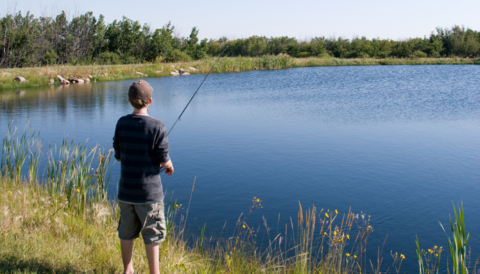Learn how to identify fish, explore habitats or try different fishing techniques and equipment.
What can you do?
In the fishing sports project, you can:
- Learn about fish species and habitats.
- Experiment with fishing gear, baits and lures.
- Tie knots, lines and flies.
- Research fishing regulations.
- Explore fishing careers.
These are just some of the many ways you can participate in this project.
Project information
Get started with 4-H'ers in your area
- Contact your local 4-H office for more info.
Get started on your own
- Begin your project learning with the fishing sports project resource guide.
- Reflect on your project and what you've learned using 4-H record keeping.
Project opportunities near you
Get in touch with your local 4-H office to learn about fishing sports project events and activities in your area.
Interested in getting involved as a fishing sports project volunteer?
Contact your local 4-H office or learn more about volunteering in 4-H.
Fair information
What does it mean to show at the fair?
For 4-H'ers, local and state showcase events (like the Minnesota State Fair) are not just fun events. They provide youth opportunities to exhibit the knowledge and skills they've gained throughout the year– and to continue their learning.
Contact your local 4-H office for fishing sports project showcase opportunities near you.
Exhibit ideas and judging criteria
Get exhibit ideas and find out what the judge is looking for in the evaluation sheet.
Reviewed in 2023


